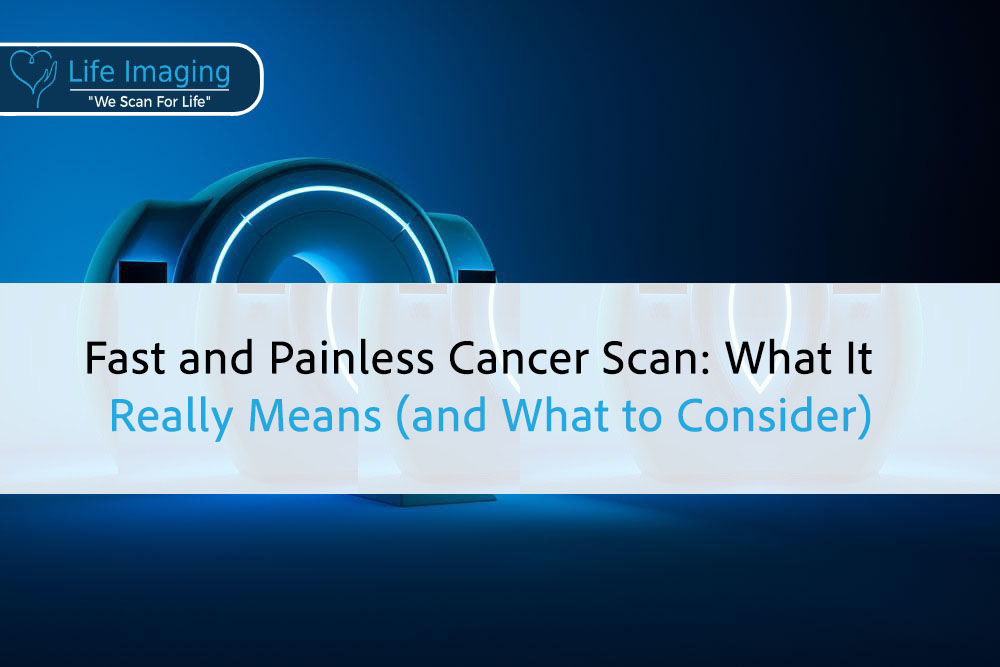
Fast and Painless Cancer Scan: What It Really Means (and What to Consider)
Fast and Painless Cancer Scan: What It Really Means (and

Taking charge of your health involves more than just routine checkups. Advanced imaging services can play a critical role in early detection of severe conditions like heart disease and cancer. At Life Imaging FLA, we offer free heart scans and comprehensive cancer screening in Miami to help you stay ahead of your health.
Free heart scans are an excellent first step in understanding your heart health. They can spot potential issues before symptoms even start, giving you and your doctor valuable information to create a preventative care plan. But heart health is just one piece of the puzzle.
Expanding our services to include cancer screenings addresses the need for early detection in both areas. Cancer screenings can discover problems at an early stage when treatment is often more effective. Combining heart scans and cancer screenings ensures a more complete view of your overall health, helping you make informed decisions about your well-being.
With these services, Life Imaging Fla aims to provide you with the tools you need for better health outcomes. By understanding the benefits and processes of both heart scans and cancer screenings, you can take proactive steps in managing your health and staying informed about your body.
Free heart scans are a valuable tool for assessing your heart health without any initial cost. These scans use advanced imaging technology to take detailed pictures of your heart and its surrounding blood vessels. The main aim is to detect early signs of heart disease, such as plaque buildup in the arteries, which could lead to serious issues like heart attacks if left unchecked.
By offering these scans for free, Life Imaging Fla hopes to encourage more people to take a proactive approach to their heart health. Early detection allows you to make lifestyle changes or start treatment before symptoms appear, significantly improving your long-term health outcomes. It’s important to remember that while a free heart scan can give you crucial insights into your cardiovascular health, it’s just one piece of the overall health puzzle.
Getting a heart scan is simple and convenient. Most scans are quick, non-invasive, and don’t require any special preparation. This makes it easy to fit into your schedule, ensuring that you can prioritize your health without any major disruptions to your daily life.
Heart scans, also known as coronary calcium scans, work by using a specialized X-ray machine called a computed tomography (CT) scanner. The CT scanner takes detailed images of your heart and its blood vessels, allowing doctors to see if there is any calcium buildup in your arteries. This calcium buildup, also known as plaque, can be an early sign of heart disease.
During the scan, you lie down on a table that slides into the CT scanner. The machine then takes multiple cross-sectional images of your heart, which are combined to create a detailed picture. The scan is quick, usually lasting only about 10-15 minutes, and it’s non-invasive, meaning no needles or incisions are involved.
The result of a heart scan is a calcium score. This score helps your doctor understand the extent of plaque buildup in your arteries. A higher score indicates more calcium and a higher risk of heart disease. Based on your score, your doctor can recommend further tests or lifestyle changes to help manage your heart health.
Early detection of heart disease offers many advantages. One of the main benefits is the ability to start treatment or lifestyle changes before the disease progresses. Early treatment can include medication, lifestyle changes like diet and exercise, and regular monitoring to keep track of your heart health.
Another benefit is peace of mind. Knowing the state of your heart health can reduce anxiety. It allows you to make informed decisions about your health and take preventive measures. This proactive approach can significantly decrease the risk of severe heart conditions, such as heart attacks or strokes.
Lastly, early detection helps save on medical costs in the long run. Treating heart disease in its early stages is usually less expensive than addressing it once it has caused significant damage. By detecting problems early, you can avoid more invasive and costly treatments down the line.
While heart scans are crucial for cardiovascular health, expanding to include cancer screenings provides a more comprehensive approach to overall wellness. Cancer screenings aim to detect cancer at its earliest stages when treatment is more effective and less invasive. Just like heart scans, early detection of cancer can lead to better outcomes and improved survival rates.
At Life Imaging Fla, we understand the importance of both heart and cancer health. Our advanced imaging technology allows us to offer a range of cancer screenings, such as those for lung, breast, and colon cancer. These screenings are designed to catch the disease in its early stages, giving you the best possible chance for successful treatment.
Combining heart scans with cancer screenings ensures that you are taking a holistic approach to your health. By addressing both heart disease and cancer risks, you are better equipped to manage your overall well-being. This comprehensive strategy allows you to stay ahead of potential health issues, ensuring a longer, healthier life.
Life Imaging Fla offers multiple types of cancer screenings to help detect various forms of cancer early. Each type of screening focuses on specific parts of the body, making it easier to spot abnormalities in their initial stages. Here are some essential cancer screenings available:
By offering a variety of screenings, we aim to provide comprehensive cancer detection services that cover different parts of the body, helping individuals stay informed about their overall health.
Detecting cancer early has a significant impact on treatment success and survival rates. Early detection means that the cancer is found at an earlier stage, making it more likely that it can be treated successfully. Here are some crucial reasons why early cancer detection is important:
Understanding the importance of early cancer detection can motivate individuals to participate in regular screenings, potentially catching the disease before it progresses.
Advanced imaging technology is crucial for effective heart and cancer screenings. At Life Imaging Fla, we use state-of-the-art equipment to ensure accurate and detailed images. Here’s how our imaging technology works:
These imaging technologies provide clear, detailed images that help doctors detect issues early. By using advanced technology, Life Imaging Fla ensures you receive the most accurate and reliable screenings possible.
Understanding what to expect during a cancer screening can ease any anxiety you may have. Here’s a general overview of what typically happens during different types of cancer screenings:
– CT Scan: You will lie on a table that slides into the CT scanner. The scan itself is quick, usually taking about 10-15 minutes.
– MRI: You will lie on a table that goes into the MRI machine. The procedure can take anywhere from 30 minutes to an hour, during which you must remain still.
– Mammogram: Your breast will be placed on the imaging plate, and a compressor will gently press it to get clear images. Each breast is typically imaged twice, and the procedure lasts about 20 minutes.
– Colonoscopy: After a prep period to clear your colon, you will be sedated. A long, flexible tube with a camera will be used to examine your colon. The procedure takes about 30-60 minutes.
Knowing what to expect can make the process smoother and less stressful. Regular screenings are vital for maintaining good health and catching any issues early on.
Interpreting your screening results is crucial for informed decision-making:
– Detailed Report: After your scan, a radiologist will analyze the images and create a detailed report. The report will outline any findings, from normal results to any detected abnormalities.
– Clear Explanation: Your doctor will go over the results with you, explaining what they mean. This might include pointing out specific areas of concern or confirming that everything looks healthy.
– Next Steps: Based on your results, your doctor may recommend further tests, changes in lifestyle, or treatment plans if any issues are identified.
Having a clear understanding of your results helps you take the necessary steps to maintain or improve your health.
Receiving abnormal screening results can be concerning, but knowing the next steps is key:
Following these steps ensures you address any abnormalities quickly and effectively.
Combining heart and cancer screenings offers a comprehensive approach to health:
– Holistic View: By screening for both heart and cancer-related issues, you gain a complete picture of your health, allowing for early detection and intervention.
– Efficient Process: Scheduling both screenings together can be more efficient and less time-consuming.
– Improved Outcomes: Early detection of diseases leads to better treatment outcomes, enhancing your overall health and longevity.
Utilizing combined screenings provides a thorough assessment of your well-being in one streamlined process.
Organizing your screenings is straightforward:
– Set an Appointment: Contact your healthcare provider to schedule both heart and cancer screenings. Doing so ensures timely and comprehensive health assessments.
– Prepare for the Screening: Follow any preparation guidelines provided by your doctor, such as fasting or specific clothing requirements.
– Post-Screening Plan: After your screenings, review your results with your doctor and make a plan for any necessary follow-ups or lifestyle changes.
Taking these steps helps you stay on top of your health and ensures you get the most from your screenings.
Regular screenings for heart health and cancer are vital for early detection and effective treatment. Understanding your results, knowing the follow-up steps after any abnormal findings, and combining screenings for a comprehensive health view are crucial aspects of proactive health management. Scheduling and preparing for these screenings ensures you are taking the necessary steps to maintain your well-being.
Be proactive about your health today by scheduling your heart and cancer screenings with Life Imaging Fla. Our advanced technology and expert care will provide peace of mind and a clear path to maintaining your overall health.

Fast and Painless Cancer Scan: What It Really Means (and
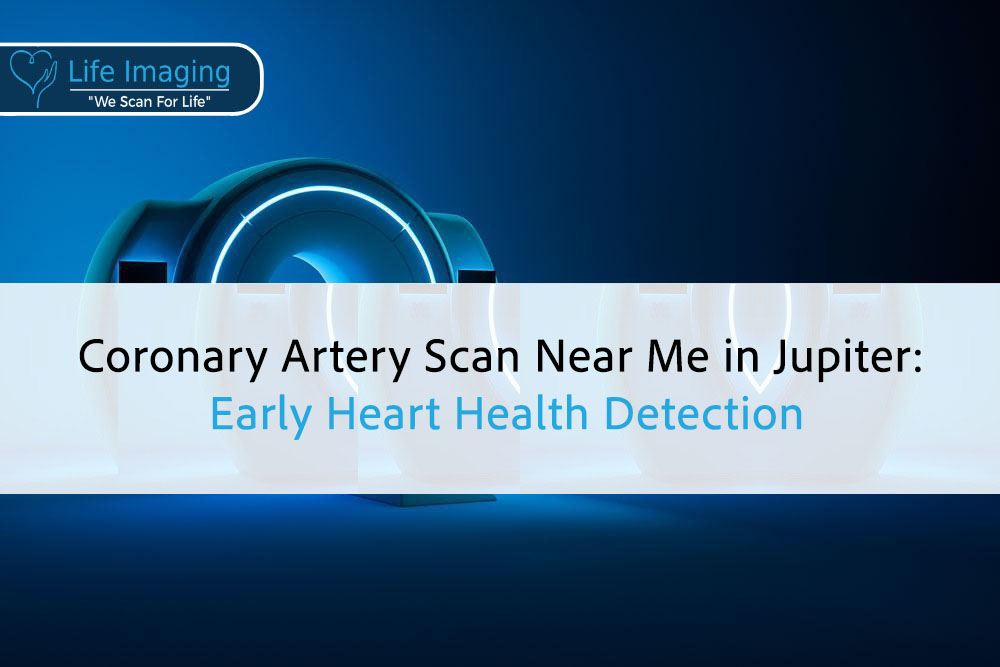
Introduction Your heart works hard every second of the day,
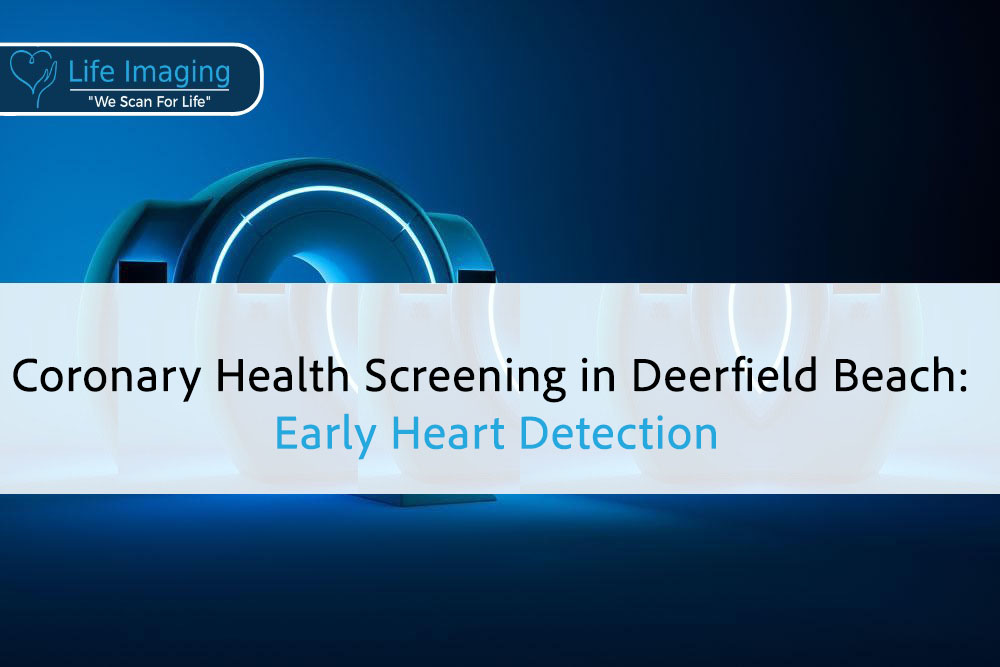
Introduction Your heart works around the clock, but changes inside
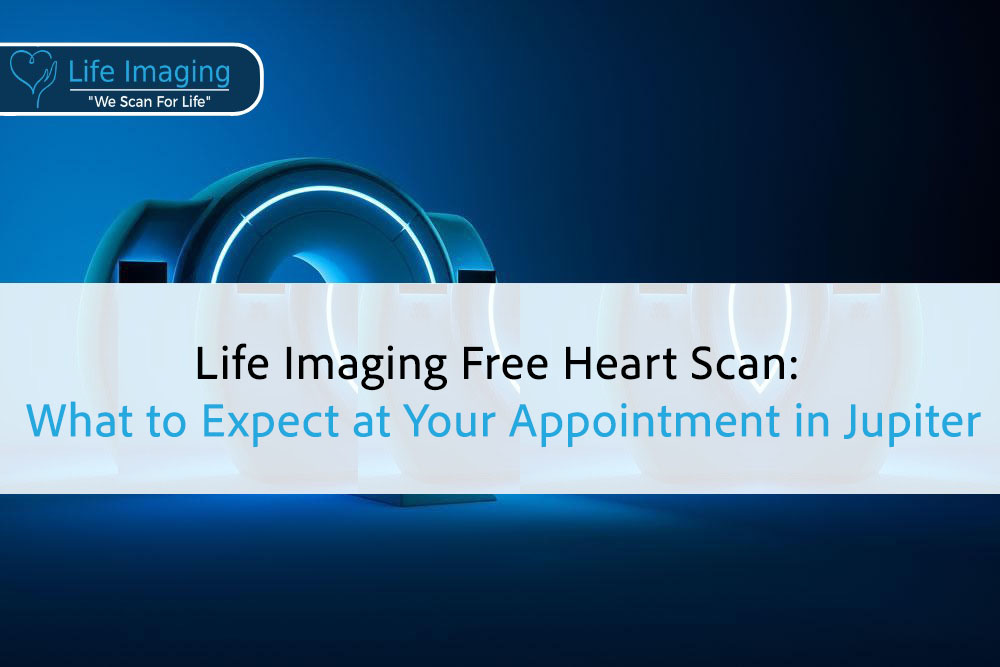
Introduction Your heart works nonstop, often without a single complaint.
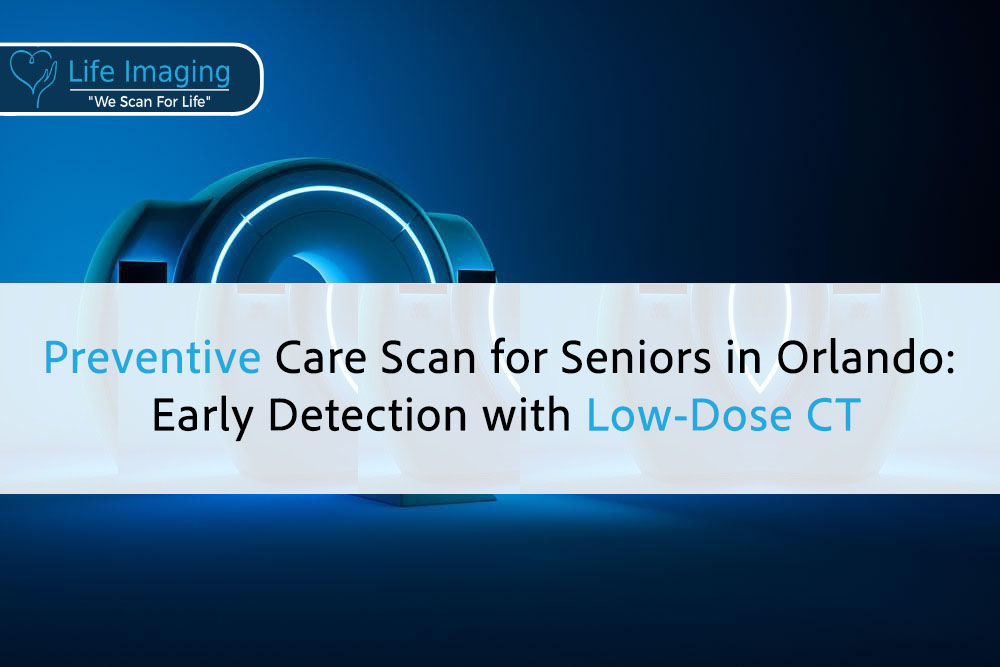
Introduction The best part of getting older is having time
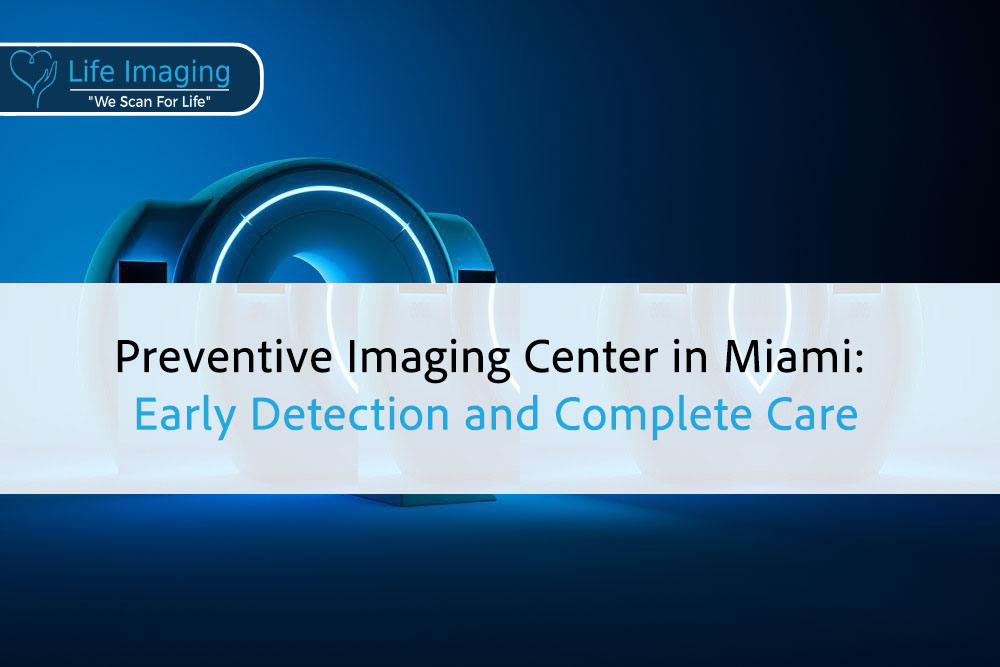
Introduction Good health isn’t just about treating problems, it’s about

* Get your free heart scan by confirming a few minimum requirements.
Our team will verify that you qualify before your scan is booked.
Copyright © 2025 Life Imaging – All Rights Reserved